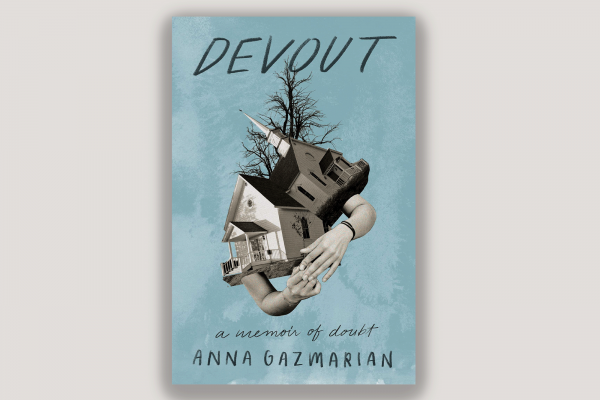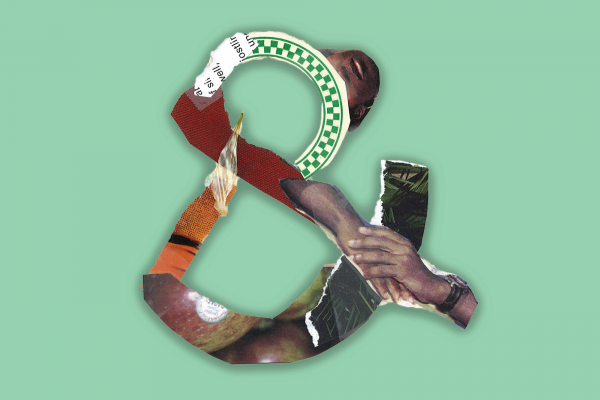“Pull the plug in September/I don’t want to die in June/ I’d like to start planning my funeral/I’ve got work to do.”
These lyrics from Lizzy McAlpine send chills down my spine every time I hear them. They’ve become a ritual for me — like a meditation or the taste of a warm latte that immediately transports you into a new headspace.
The opening words of “doomsday” set the tone for the remainder of McAlpine’s sophomore album, Five Seconds Flat. It is an intense, gut-wrenching journey of love, loss, grief, and the complexities that come with each emotion. McAlpine leans into imagery of death, murder, reckless driving, and other macabre realities to describe this story. Through lyric and melody, she invites us in. I, like millions of others, am here for the ride.
But why?
If I wanted to offer a quick answer, I’d tell you that it is because McAlpine is masterful in her ability to tell a story through music. Few artists can bring the genres of pop, rock, indie, and even musical theater together in a single album, let alone a single song. Add in collaborations with artists like FINNEAS and Jacob Collier and this cinematic album is like a great film that you watch again and again and yet find new meaning each time.
All that being true, there’s still a deeper, more honest answer for why my ear is obsessed with Five Seconds Flat: It’s dark.
McAlpine’s short film of the same name, which accompanies the album, peers into these shades of darkness. Songs of contemplation are marked by soft hues of artificial light, overcast clouds, and desaturated grays. Thrilling mistakes are made in dark shadows and illuminated by harsh streaks of light and glowing neon signs. Moments of clarity, of course, are the only scenes marked by daylight.
I wake up around 5:30 a.m. most days. I’ll pour a cup of coffee, turn up the thermostat, and sit down to read a book or listen to a podcast. Almost three hours later and I am still left waiting for the sun to illuminate the horizon beyond a soft glow. My lamp illuminates the pages in front of me, but my mind is elsewhere. Just as it is for McAlpine, these soft hues are moments of contemplation. I’m often looking outside at the cold, dark snow filtered in gray and blue, thinking of the months ahead when the sun will return again, warmly refracting its light through my patio windows and casting shadows across the pages of a good book. I imagine McAlpine would warn against my nostalgia that erases the troubles present even in the light of a beaming sun. “Race you to the end,” she sings. “My innocence waits like it desperately knows that I’ll crash if I don’t let you go.”
These early winter mornings are filled with grief and longing, reminiscent of a breakup; and, like heartbreak, little can be done to ease this pain. There is no quick fix, only the process of waiting for the sun to spend a few minutes longer with us each day. The artifice of imitation lights and vitamin supplements are exposed in the memory of a warm sun. I can run to Florida to get a bit of sunshine for a quick fling with the sun, but it won’t last. As McAlpine laments in “An Ego Thing,” these mornings I am left with the disordered conclusion that “there’s nothing else to it/I can’t do anything more.” McAlpine is no stranger to darkness.
The Bible talks a lot about darkness, too.
At the beginning of time, God separates light from darkness, instituting two distinct realities destined to eternally contrast one another (Genesis 1). At moments of great injustice and evil, physical darkness covers the land (Exodus 10:5; Isaiah 60:2; Ezekiel 26:19; Luke 23:44-45). Darkness is also the place where we are separated from God and judgment is enacted. “You have put me in the depths of the Pit, in the regions dark and deep,” the psalmist writes. “Your wrath lies heavy upon me, and you overwhelm me with all your waves” (Psalm 88:6-7; cf. Matthew 25:30). Scripture also aligns darkness with a way of life that forsakes the path of uprightness and rejoices in doing perverse evil (Proverbs 2:12-15). The darkness of death and grief cast shadows in deep valleys of our life (Psalm 23).
However, the Bible is not without hope in these cold, shadowed times. “I am the light of the world” Jesus claims before the Pharisees. “Whoever follows me will never walk in darkness but will have the light of life” (John 8:12). John reiterates this theme in his first letter: “This is the message we have heard from him and declare to you: God is light; in him there is no darkness at all” (1 John 1:5). This pure light of God is not only a comfort for those trapped in darkness, but also an invitation into something better: a new way of being in a world covered in shadows. Jesus says that we are the light of the world (Matthew 5). We mirror and refract God’s pure light. The light of Jesus is illuminated through us and causes the shadows of death to flee.
In the final act of Five Seconds Flat, natural light begins to dispel the darkness. Unlike the artificial strobes of late-night parties, the light of the sun brings out an honest reflection: “Hate to admit but it might be true; hate to admit but I think you knew; hate to be lame but I might love you.” It is only through the clarity of light that Lizzy can return to the place of her first love, the “Orange Show Speedway,” only to realize that she’d never actually been there in her life.
The album closes with an honest confession: “I think it all kinda feels like an Orange Show Speedway when you’re racing head first towards something that’ll kill you in five seconds flat/ when I’m racing head first towards everything that I want back.” What I hear McAlpine admitting here is that, for all the pain that comes in darkness, when we emerge from it with a sense of clarity we find that these moments of grief and loss are part of what it means to be human.
The clarifying perspective Lizzy and God have collectively given me is a recognition of darkness’ ephemerality. Although the winter may feel long, it is not long before we emerge with the opportunity to find clarity and make sense of the darkness in the presence of light. Even more, as Christians, we hold within ourselves a light that cannot be consumed by the darkness. While darkness may surround us through the shadows of grief and clouds of death, the pure light of God will always prevail, dispelling the darkness and bringing renewed joy and clarity as the sun rises once again.
Got something to say about what you're reading? We value your feedback!







